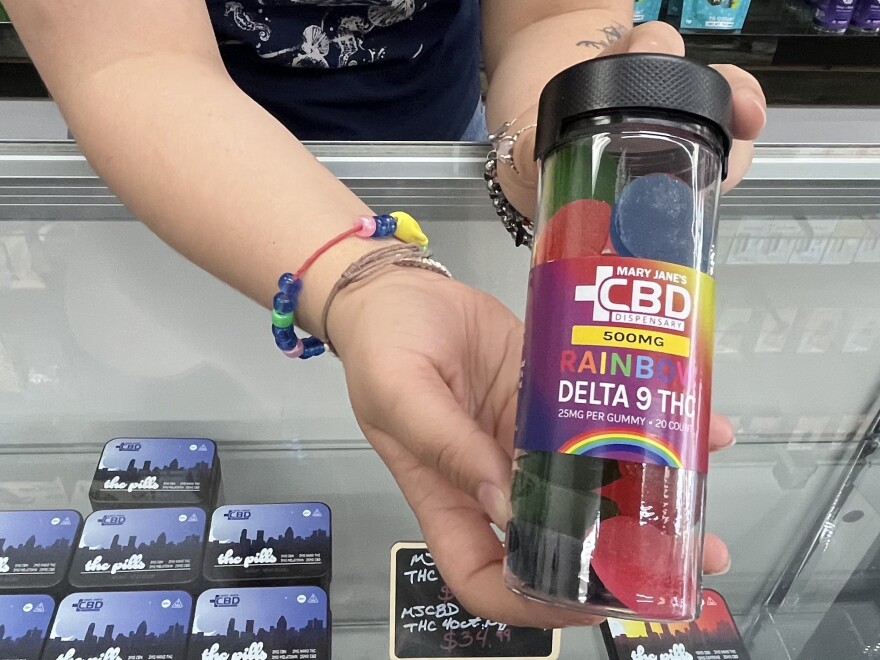Sign up for TPR Today, Texas Public Radio's newsletter that brings our top stories to your inbox each morning.
The future of consumable hemp in Texas is currently being debated during the special session in Austin. Much of the focus has been on keeping THC — the primary intoxicating element in cannabis — out of the hands of children.
There’s currently no age minimum in Texas to buy hemp-derived products like gummies or vapes, but public-school students are punished if they’re caught with THC.
A 2023 state law says schools must send students to alternative school if they’re caught with THC. Expulsion is also on the table.
TPR Education Reporter Camille Phillips wanted to know if regulating or banning THC could help keep more students in the classroom, so she went and talked to several people on the front lines. She shared what she learned.
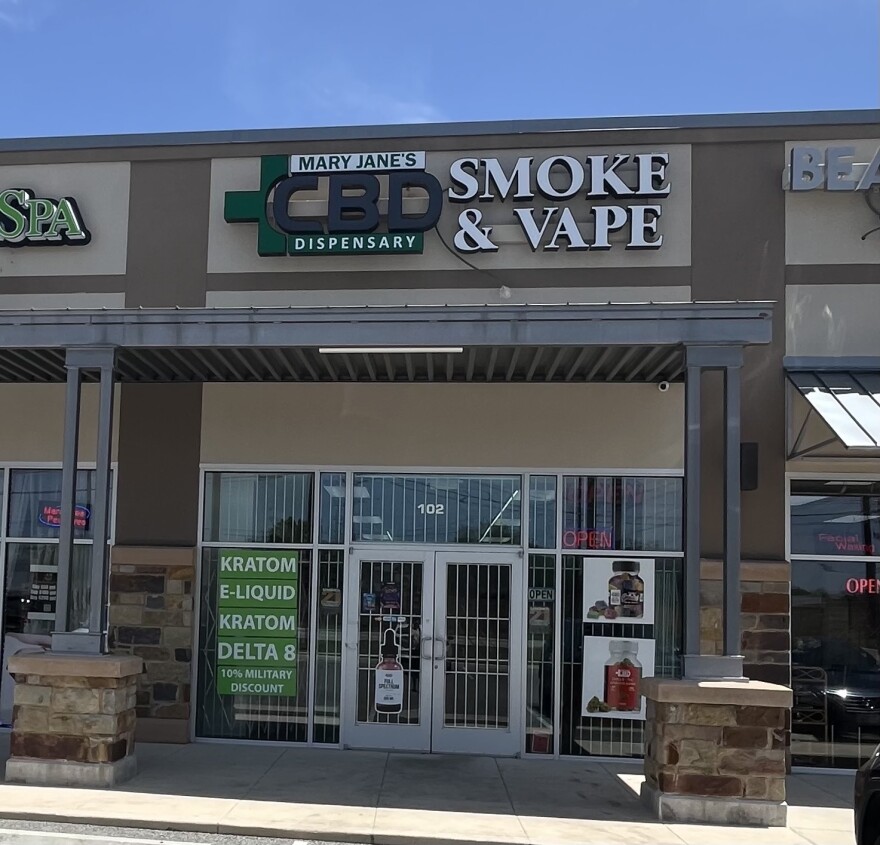
The enforcer
I’ve long wanted to do a story about the popularity of vapes — either nicotine or THC among young people — and the ripple effects state laws are having in Texas schools.
Now that banning or regulating THC is a top issue during Texas’ special session, it seemed like the right time.
I started my reporting quest at the Mary Jane CBD Dispensary on San Antonio’s Far West Side.
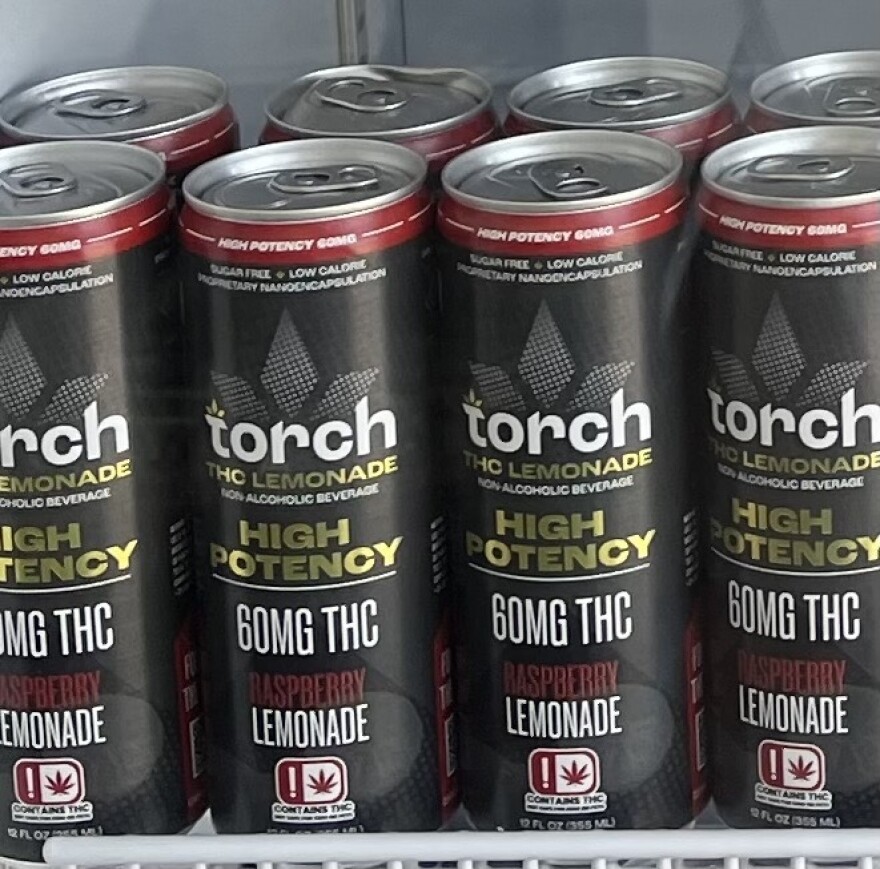
On a recent Thursday afternoon, Felicity Engle helped a customer purchase several THC consumables: a black-cherry-flavored THC seltzer from the locked fridge at the front of the store, and a Durban Poison and a Purple Haze from the pre-roll and vape section near the register.
“Will that be all for you?” Engle said, then she asked him if he had a phone number with the store. He did, which means he’s a regular customer.
Mary Jane CBD sells both nicotine and THC products. An official-looking sign out front says it’s against the law to purchase cigarettes and e-cigarettes if you’re under 21. Another at the register says a photo ID is required.
And Engle’s the one enforcing that.
“We have to card people who look 35 and younger,” Engle said. “Obviously, if I've seen your card before, and like, you're a regular, I don't tend to card very often because, you know, I recognize them.”
Even though there’s technically no minimum age to purchase hemp-derived products in Texas, Engle said her bosses trained her to prevent those under 21 from purchasing anything in the store.
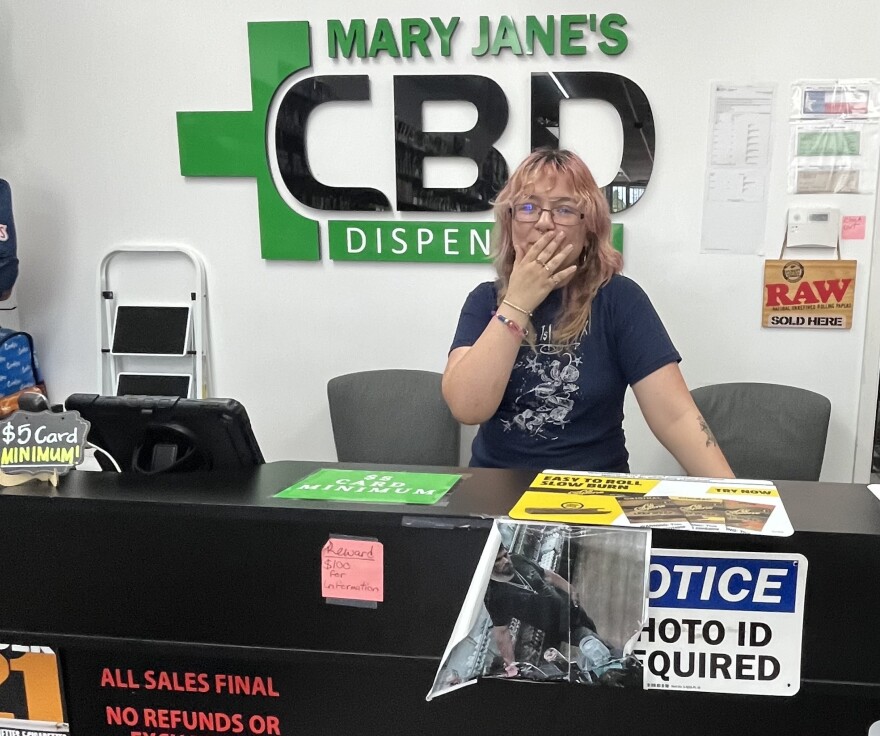
“I have had people get upset, especially with, like, our tobacco wraps and our papers and cones,” Engle said. “But I'm like, I still can't.”
Mary Jane CBD is one of four or five smoke shops within a 10-minute drive of San Antonio’s Stevens High School. Planes roar overhead from nearby Lackland Air Force Base. A couple of gas stations here also sell nicotine vapes. I checked, and most of them have signs barring people under 21 from buying them.
Cynthia Cabrera with the Texas Hemp Business Council said it is in retailers’ best interest to card even though the state doesn’t require it yet.
“The downside to not doing it is that you get a lot of bad publicity, or you have an angry parent or something like that. And thankfully, that's not the case, because overwhelmingly retailers do do it,” Cabrera said.
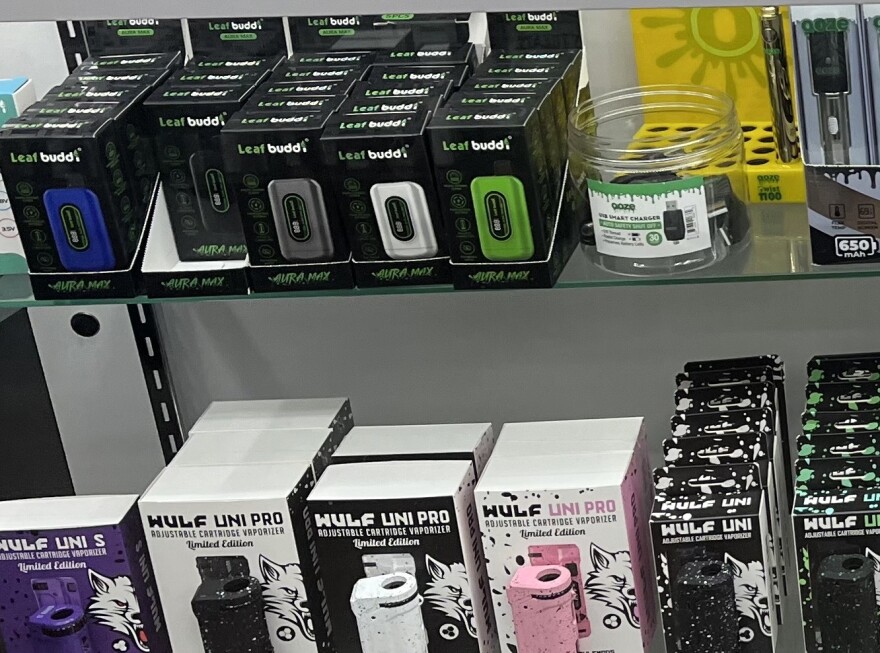
Still, lots of Texas kids and teenagers are getting a hold of THC products, especially vapes.
And that’s getting a lot of kids in trouble at school. In 2023, the state created new discipline codes for students caught with THC or any kind of vape, including nicotine. In the first year the law was in effect, school districts reported disciplining nearly 70,000 students statewide under those new codes, And, according to administrators, more than half were for THC.
Arianna, the parent of one of those students, called into TPR’s "The Source" last year to express concern.
“I personally have a 13-year-old who's gotten in trouble at school several times, NISD, and even suspended and sent to alternative school because they're continually getting these vape pens from their friends at school,” Arianna said. “That seems to be the hotspot for it.”
School discipline
NISD is Northside Independent School District — the next stop on my reporting quest. As the person responsible for holding disciplinary hearings for the district, Katherine Lyssy was likely in the room when Arianna’s 13-year-old was sentenced to alternative school.
Lyssy told me that, in her experience, most students are not getting vapes from smoke shops. Instead, she said students say they get them from friends at school, or from dealers they call friends.
“We're like, 'dear Lord, do you understand you are sneaking out at three o'clock in the morning to meet a drug dealer that you don't know?' ” Lyssy said. “They don't realize how dangerous their behaviors are.”
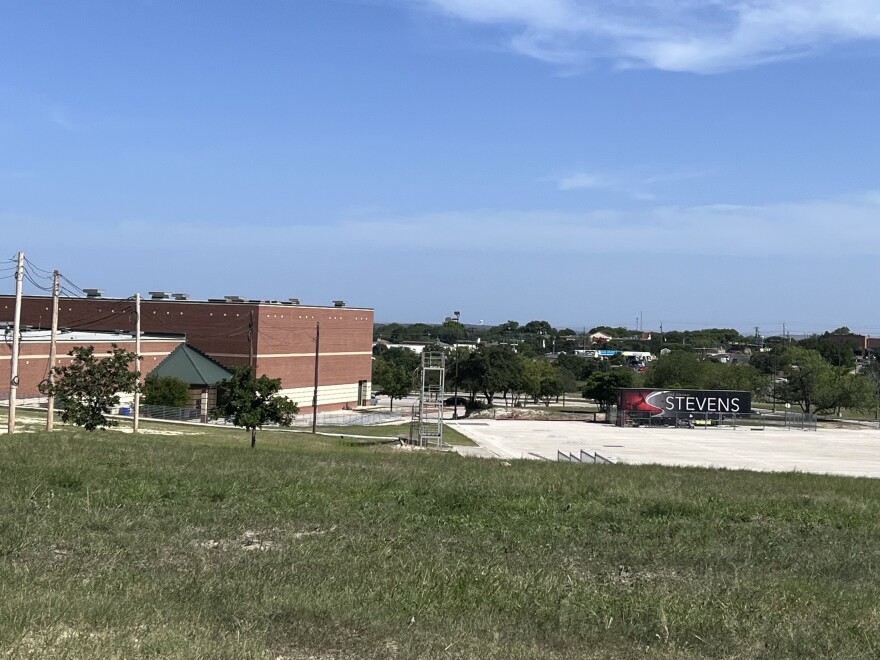
In 2023, Texas also began requiring districts to send students to alternative school if they were caught with any kind of vape or THC.
Last year, 65% of Northside’s disciplinary hearings were for vapes, and most of those contained THC. As the fourth largest district in the state, Northside has the capacity to test vapes to see what’s in them.
Lyssy said the first time a student is caught using THC, Northside sends them to a 10-day program called Second Chance Academy.
“More trying to get to the counseling piece of it,” Lyssy said. “Like, let's not throw their whole life away on a first offense. But then, after that, then we escalate it.”
On a second offense, Northside gives students 30 days in alternative school. And if it keeps happening, Lyssy told me they sometimes expel students to the Juvenile Justice Academy downtown.
That kind of discipline — escalating to keep students out of their normal learning environment for more and more time — worries Paige Duggins-Clay. She’s the chief legal analyst for the Intercultural Development Research Association, an education and advocacy group.
“We think that sending young people to harsh, punitive, carceral environments for any amount of time, but especially an extended period of time, is really harmful to their academic, behavioral, and mental health,” Duggins-Clay said.
Research shows that missing class as punishment can worsen students’ academic outcomes. A 2021 study published by the University of Texas at Austin found that just 44% of Texas ninth graders sent to alternative school graduated from high school four years later.
Instead of focusing on punishment, Duggins-Clay said she’d like to see Texas invest in public health programming that teaches students the health risks of vaping.
“There is an effort and initiative to punish kids for things that, really, ought to be the responsibility of adults, and in many cases, policy makers,” Duggins-Clay said. “If an adult is selling a product to a young person, that hurts them and should be against law.”
Teen psychology
As an educator, Lyssy is very aware of the research showing that teenagers with developing brains don’t always make the best decisions.
She said during Second Chance Academy they teach students that “your executive function is not there yet, and so you have to have a strategy [to make good decisions].”
But she doesn’t see that as a reason not to discipline students. “You don't learn those executive reasoning [skills] unless you get consequences for it,” Lyssy said.
But there’s one thing pretty much everyone I spoke to for this story agrees on: Laws don’t change teens’ attitudes. Telling them something is illegal won't make them less likely to do it.
So, even if Texas lawmakers ban minors from purchasing THC this special session, the people on the ground are skeptical it’ll make a difference.
A legal gray area
To make things even more complicated, a lot of the stuff schools and lawmakers call THC are probably actually a manufactured mix of other cannabinoids. That’s what makes them legal to sell in Texas smoke shops.
Back at Mary Jane CBD in San Antonio, Engle listed all of the cannabinoids they use.
“This side is our THC disposables,” Engle said. “We have, again, a lot of blends. The only singular like THC-strength we're going to have is going to be HHC and Delta-8.”
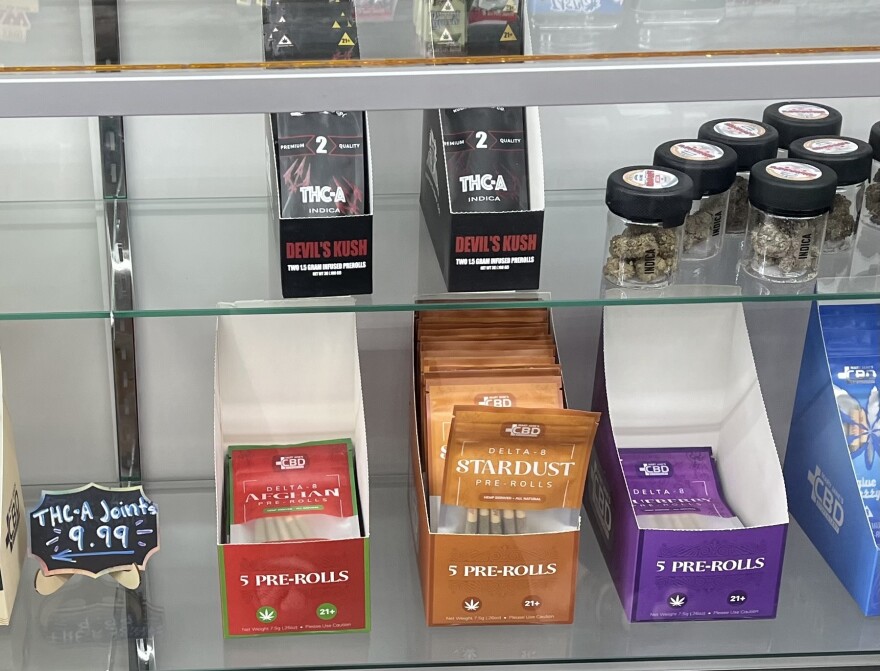
A law that goes into effect on Sept. 1 bans Texas retailers from selling vapes with any kind of cannabinoid. And a Senate bill being considered in the special session would ban all intoxicating hemp products.
These measures could theoretically help keep cannabis out of the hands of students. But that’s assuming teens, or their older siblings — or their dealers — don’t already buy products online or out of state. And it might just make purchases go even further underground.
Tyler Shoesmith with North East Independent School District told me in an email that banning Texas retailers from selling hemp vapes won’t make a difference at San Antonio’s second largest district.
“Local retailers, unless they are breaking the existing law, are not selling the high percentage Delta-9 THC e-cigarettes and consumables that schools are typically finding,” Shoesmith said. “Those items are coming from online purchases, sometimes shipped directly to the purchaser or proxy, or transported across state lines from states where they are legal.”
Like Northside, North East tests vapes for THC, something that is harder for smaller districts to do.
A silver lining?
Gov. Greg Abbott also signed a new school discipline law in June that, again theoretically, could reduce skyrocketing alternative school rates.
The first year THC and vapes were added as discipline categories, the number of drug and vaping discipline counts grew nearly 50% statewide, according to data from the Texas Education Agency. The number of removals to alternative school grew nearly 25%.
The new discipline law, House Bill 6, lets districts send students to in-school-suspension instead of alternative school on the first offense if they are caught with a nicotine vape. But alternative school is still mandatory on a second offense for nicotine vapes, and on the first offense for any kind of THC product.
Duggins-Clay said she’s not confident HB 6 will end up keeping more students in class.
“We've also given districts a lot more discretion on a lot of other types of incidences that are far more subjective, broad and just as likely to sort of sweep in a whole host of students [when], really, we could use other methods to address those behaviors and those challenges,” Duggins-Clay said.
She’d like to see more school districts follow the lead of Austin and San Antonio ISD, who have used their status as districts of innovation to opt out of mandatory removals when students are caught with vapes.
“Austin Independent School District has a really excellent diversion program, where, rather than sending a student to [alternative school], they're engaging in a process of education, both for the parent and for the student, and if a student agrees to go through that process, they have the ability to remain connected in school,” Duggins-Clay said.
SAISD sent nearly 600 students to alternative school for vapes the first year it was mandatory. Then, the school board voted to opt out of the mandate. They sent less than 200 students to alternative school for vaping during the 2024-2025 school year, even though nearly 100 more students were caught with vapes.

